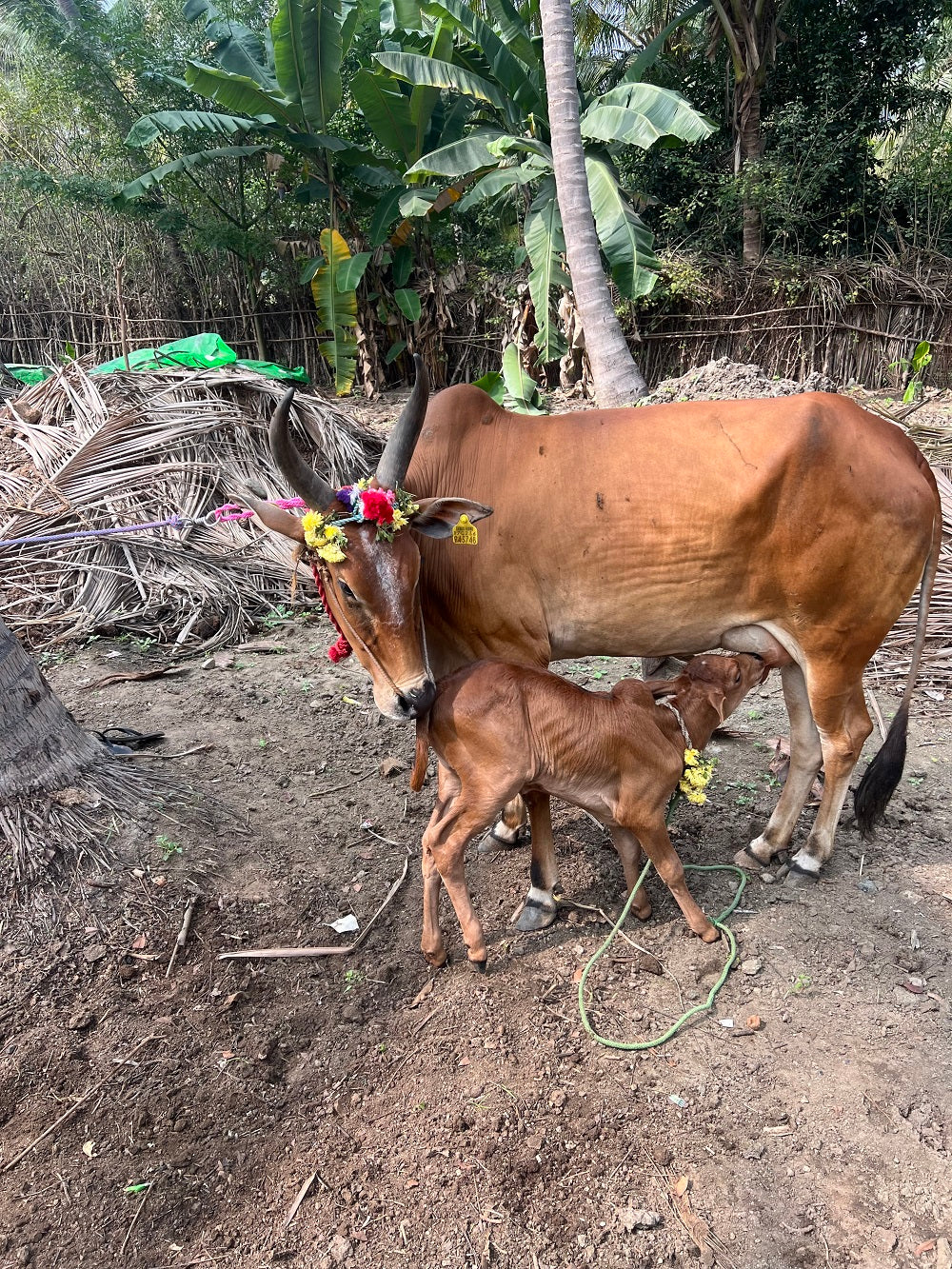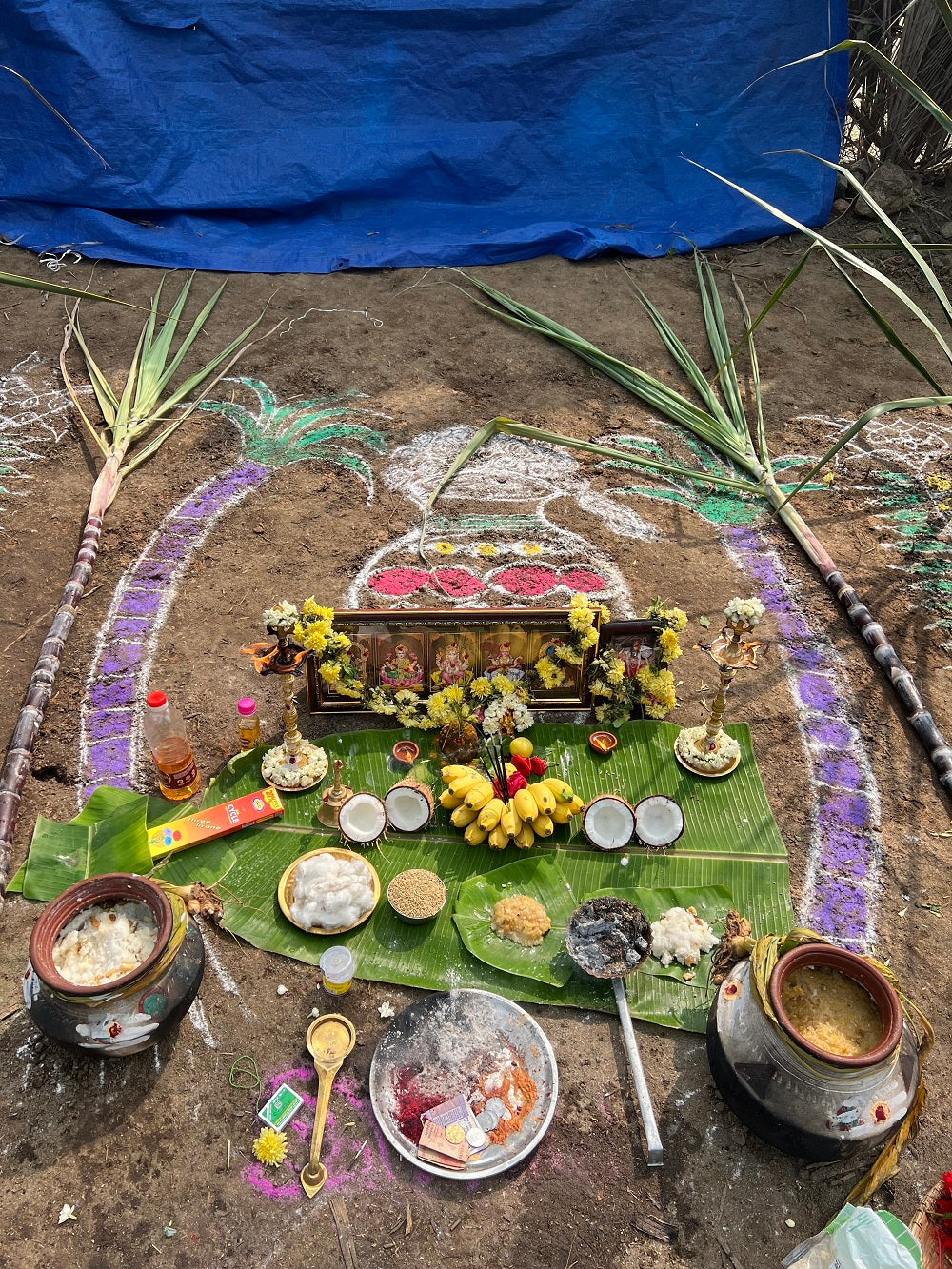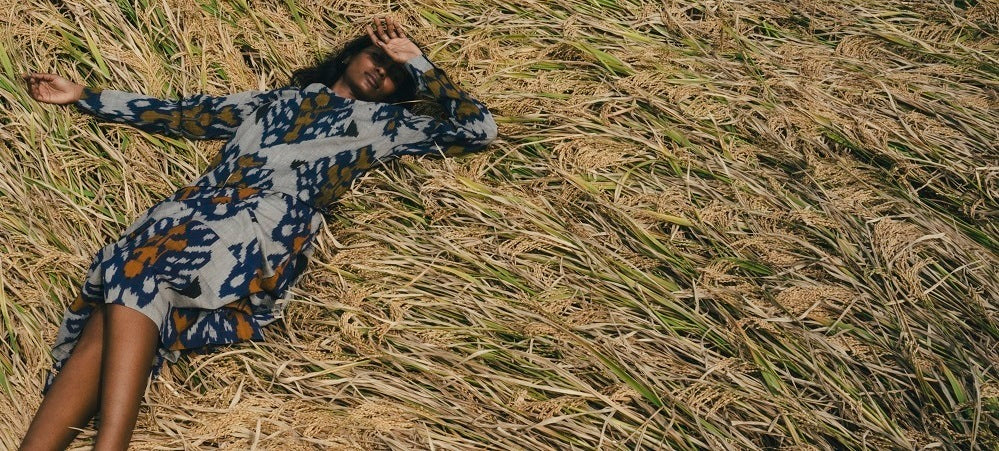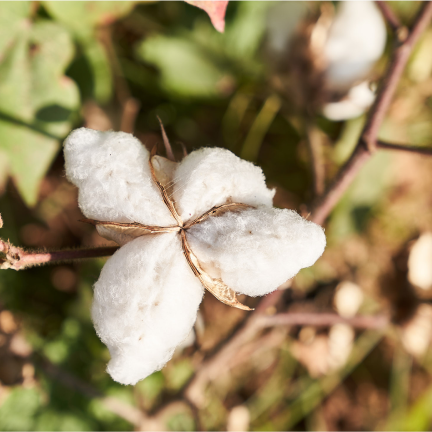The Tamil calendar season pinpani kalaam begins with the Pongal festival to give thanks for the harvest and ensure a for the rest of the year. At the farm, cotton is grown in rotation with paddy for rice and mung beans (greengram). For the earth to be regenerated and nutrients to be returned to the soil, the Oshadi Collective’s farm grows a diverse mix of grains, seeds, and pulses which each play their part in ensuring the earth is given time to recover after each harvest.
The mix of intercrops and border crops also attract pollinators, act as companion planting and provide organically grown produce which is distributed between the team, and used to make delicious and healthy daily snacks throughout the year for the whole workforce.

Here, Oshadi’s regenerative farm manager Vaishali describes this year’s festivities shared by the whole collective including all the animals on the farm, and how the fields are prepared ready for the next cotton crop to be sown:
We celebrated the pongal festival at the farm on January 16. We cleaned the cow shed, office and storage area, we gave the cows, bulls, calves and dogs a nice bath and decorated their horns with colourful flowers and bright coloured collar ropes.

As part of the festival, we did pooja by making a Lord Ganesha idol using turmeric and water paste and another Ganesha idol with cow dung.
We drew kolam - a Tamil traditional drawing made with rice flour and colour pigments - and laid out all our harvested farm produce like cotton, paddy and greengram from the crop rotation, blackgram which is an intercrop along with pearl millet, and finger millet and castor which are both grown around the borders for extra biodiversity in front of hindu god photos and a ganesha idol which we made as a sign of offering the harvest to them. We lit a brass velakku (lamp) with castor oil + sesame oil and a cotton wick which signifies an auspicious event. We also added bananas, coconuts and natural incense sticks. We decorated the farm, the office, and the cow sheds with mango and banana leaves typical of all south Indian festivals.
As part of the celebration, we cooked sakkara pongal (sweet pongal) and vella pongal (plain pongal) in mud pots over wood fire stoves at the farm. Sakkara pongal is made with rice, dhal, water, milk, jaggery, ghee, cashew nuts, raisins, and cardamom. Vella pongal is made with rice, water and milk. We allow the rice water to boil and overflow from the pot which is considered a good sign and meant to keep the food flowing throughout the year. We also made vadai (crispy donuts made with black gram and spices and fried in oil), sundal (chana dal sauteed with spices), idly (steamed dish made with rice and blackgram) and sambar and coconut chutney for all the farmers, tailors and office employees. It was quite a feast!

Our farmer mathapan did the pooja as he is the eldest of our company. He did all the rituals and gave us the prasadham (food kept in pooja). Our farmers veeramma, gomathi, and narma made the pongal and other food and everyone helped out by cutting vegetables, grinding and frying. After pooja we fed all the animals with pongal and banana which is everyone’s favourite bit because our cows love bananas! After that we all sat down together to eat the meal from banana leaves.

In preparation for the next crop of cotton, sunn hemp and sesbania is grown in all the fields for 45 days until they flower. Then they are ploughed into the field to improve the nutrients along with a good layer of farmyard manure. Once the ploughing is done, the field is ready for summer season crops.












